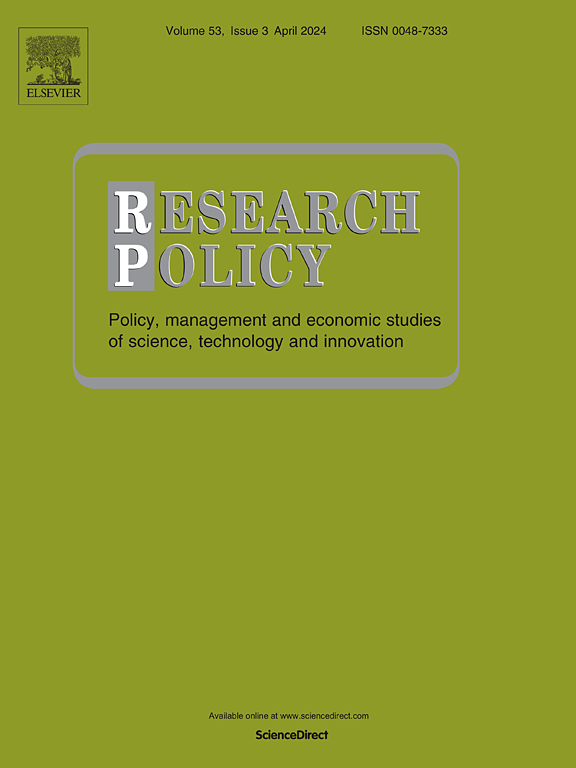The entrepreneurial ecosystem clock keeps on ticking – A replication and extension of Coad and Srhoj (2023)
IF 7.5
1区 管理学
Q1 MANAGEMENT
引用次数: 0
Abstract
A key hypothesis in the entrepreneurial ecosystem (EE) literature is that a positive relation exists between the quality of EEs and the prevalence of productive entrepreneurship. Recently, Coad and Srhoj (2023) argued that the quality of EEs should also be positively related to the persistence of productive entrepreneurship. However, using two different measures for high-growth firms in regions in Croatia and Slovenia, they found no consistent evidence for the persistence of productive entrepreneurship. This led them to conclude that the EE framework is not valuable for policymakers. We contend that their generalization is incorrect and that their findings are consistent with a further articulation of the EE approach.
We build our argument in two empirical studies. In Study 1, we replicate the approach by Coad and Srhoj (2023) in the Netherlands, where we find strong evidence for the persistence of productive entrepreneurship. We argue that the differences found in the replication study can be explained by accounting for the quality and size of EEs. In Study 2, we follow up on this notion by formulating two new hypotheses about the effect of quality and size of EEs on the persistence of productive entrepreneurship but argue that this effect decreases in strength as the quality and size of entrepreneurial ecosystems increase. Our hypotheses are supported by data on EEs and innovative start-ups in Europe. Accordingly, our results reconcile the different findings in the literature regarding the persistence of productive entrepreneurship. Theoretically, our work provides a further articulation of the EE approach by explaining the persistence of productive entrepreneurship, in addition to the more commonly studied prevalence of productive entrepreneurship. We conclude with policy implications of our findings.
求助全文
约1分钟内获得全文
求助全文
来源期刊

Research Policy
MANAGEMENT-
CiteScore
12.80
自引率
6.90%
发文量
182
期刊介绍:
Research Policy (RP) articles explore the interaction between innovation, technology, or research, and economic, social, political, and organizational processes, both empirically and theoretically. All RP papers are expected to provide insights with implications for policy or management.
Research Policy (RP) is a multidisciplinary journal focused on analyzing, understanding, and effectively addressing the challenges posed by innovation, technology, R&D, and science. This includes activities related to knowledge creation, diffusion, acquisition, and exploitation in the form of new or improved products, processes, or services, across economic, policy, management, organizational, and environmental dimensions.
 求助内容:
求助内容: 应助结果提醒方式:
应助结果提醒方式:


